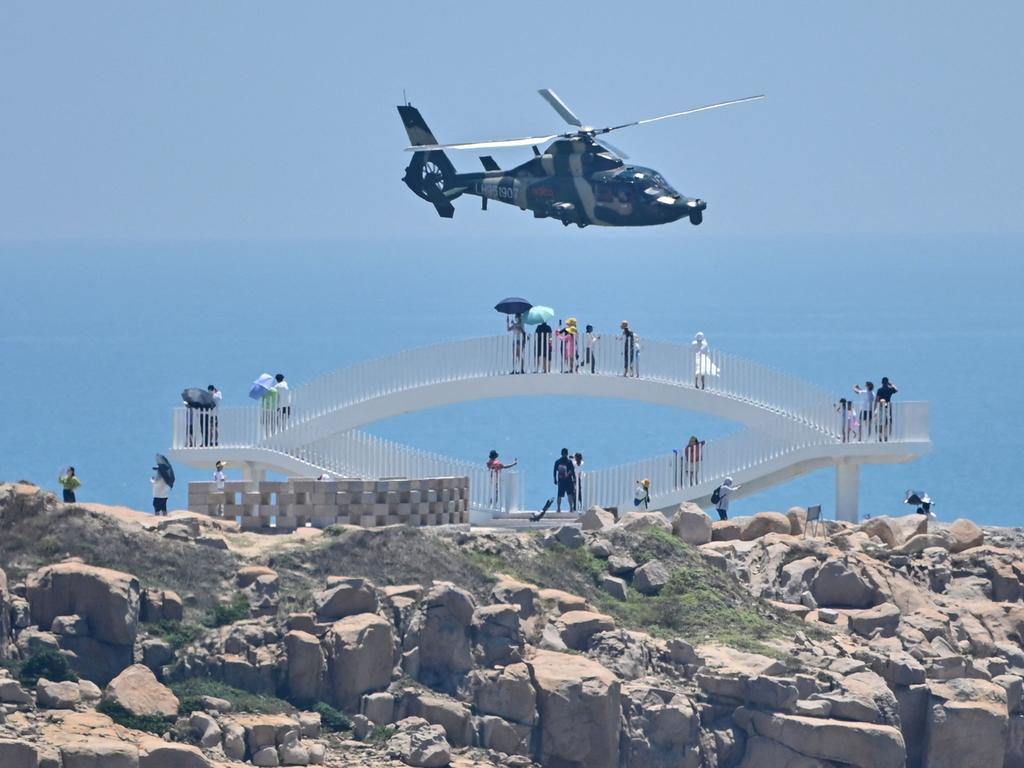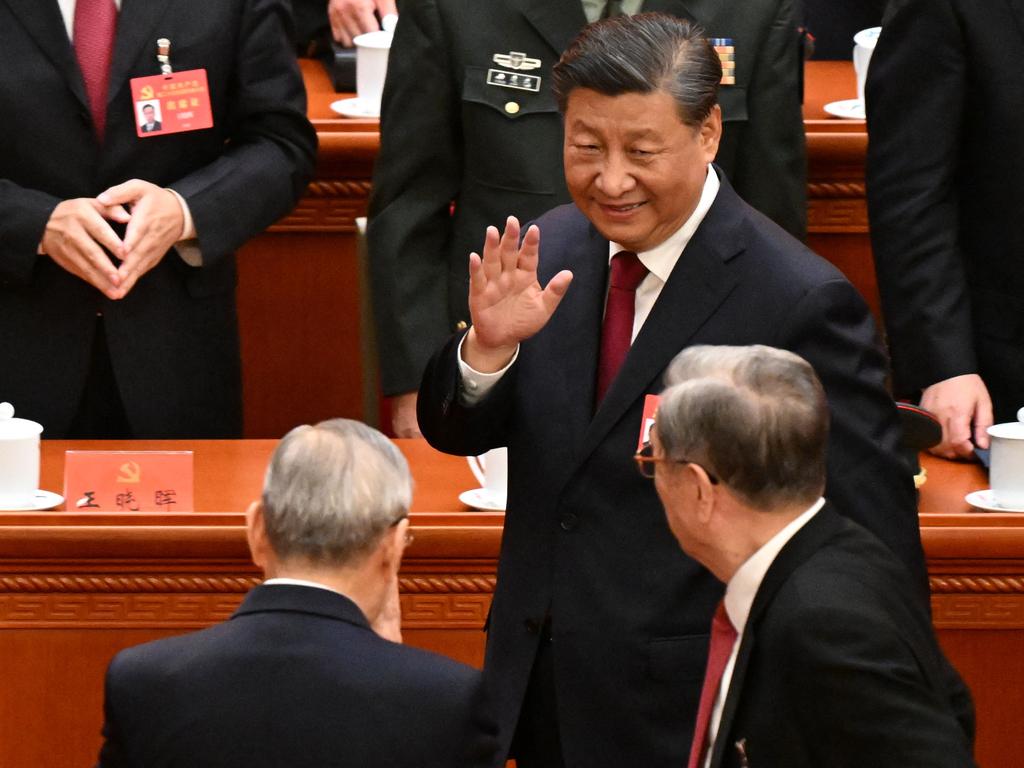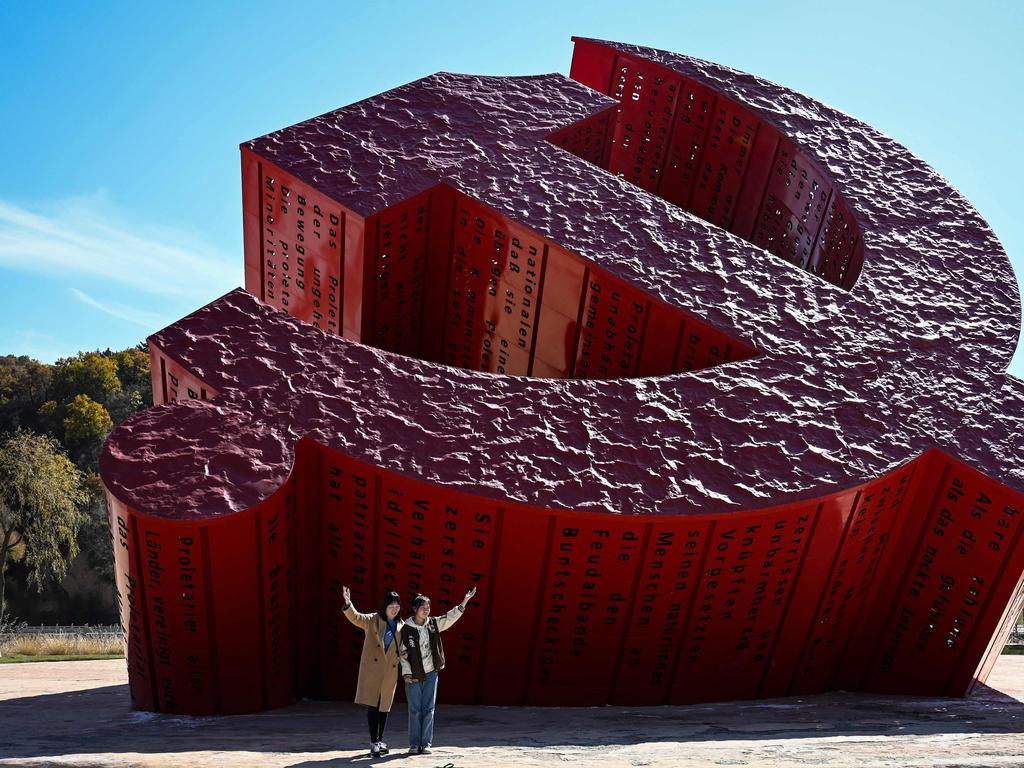
Of course, references to Thucydides’ History of the Peloponnesian War are hardly new. Already in 2014 Xi Jinping had declared that “we all need to work together to avoid the Thucydides trap – destructive tensions between an emerging power and established powers”.
Since then, that call has become a crescendo, reaching a surely unsurpassable peak when Michael Keating and Jon Stanford, writing on these pages, warned that “Australia could provide the meat in the sandwich of the Thucydides trap”.
What Thucydides would make of all that it is impossible to say. It is true that he hoped to produce a work that would be a possession for the ages – a “ktema es aei”. And it is also true that his History, with its intricate structure and complex language, can be read in many different ways.
But it is impossible to resist the conclusion that the interpretations being placed upon it bear little relation to his magnificent text.
Those interpretations build off a sentence in the History which, it is claimed, states that the war was primarily “caused” by Sparta’s fear of Athens’ growing power. From that, the inference is drawn that the real danger we face is not China but our fear of China, with the risk being that fear will unleash a cycle of action and reaction that culminates in war.
It is, however, highly questionable whether the term Thucydides uses, prophasis, means cause, at least in the modern, scientific, sense of the word; rather, in the Greek of Thucydides’ day, it meant the reason one would give, if pressed, for one’s actions.
To that extent, Thucydides is simply saying that Sparta’s fears of Athens’ hegemonic ambitions were a major reason it went to war. But what is even more important is that Thucydides nowhere suggests that the Spartans’ fears were irrational or that their decision – which eventually led to Sparta’s victory – was ill-considered.
On the contrary, the picture Thucydides paints, although contested by some modern historians of the war that raged from 431BC to 404BC, is clear. At its heart lies the contrast between Athenian arrogance and Sparta’s measured response.
Brimming with the self-confidence that comes from rapid expansion (driven less by soaring intellect than by the lust for profit, kerdos, which Thucydides, unlike his contemporaries, did not deride), the Athenians breached the spirit, if not the letter, of their obligations under the peace treaty they had concluded with Sparta, while bullying smaller cities into becoming vassals, imposing economic sanctions on those that refused to submit.
Faced with Athens’ mounting belligerence, Sparta resisted calls from its allies to defend the peace; apprehensive of loss, and wary of war’s uncertainties, it remained cautious and conservative, thus encouraging the Athenians’ sense of invulnerability.
As the Corinthian ambassadors argued in castigating Sparta’s slowness and hesitation, “the Athenians dare beyond their power, run risks beyond their judgment, and in danger are full of good hope”; Sparta, on the other hand, “does less than is in her power, fails to accomplish even those things which judgment sanctions, and confronted with danger, expects the worst”.
Yet Pericles realised that, sooner or later, Athens’ policies were bound to lead to war. Wanting it to come in favourable circumstances for Athens, where it was better prepared than its enemy and could claim to be in the right, he pushed the Spartans to the point of no return.
Unfortunately, the outbreak of fighting only fuelled the Athenians’ intransigence. Drunk with pride, and convinced that might makes right, they hubristically told the hapless Melians “the strong do what they can and the weak suffer what they must”.
Then, underestimating the importance and solidity of alliances, and predicting that the Spartans would not honour costly commitments to distant friends, they recklessly attempted a naval invasion of Syracuse that destroyed their fleet and decimated their youth, opening the road to Athens’ downfall.
None of that implies Thucydides welcomed the war he dispassionately observed.
Calling it a “teacher of violence”, he described the suffering war inflicts as “meizo e kata dacrya” – “too great to be measured by tears”. And as its horrors stripped away the veneer of civilised morality, even the finest cities were swept into a vortex of chaos: individuals and states lost their ability to make things happen; instead, terrible things that they could never have predicted happened to them.
Seen in that light, the History is a sombre and sceptical work that, above power and ambition, advocates circumspection and self-doubt as the best stance toward a dangerous, dimly understood reality. Fear of poor judgment and of the gap that forever exists between what we can know now and what we will find out only later was, for Thucydides, the beginning of wisdom.
But it was never its end. A former Athenian general, Thucydides was a hard man, neck-deep in the human condition as it is, rather than as it could be. The strongest, he tells us in his rendition of Pericles’ final speech, are those whose mind is least bowed by misfortune and whose hands are the readiest to meet it. And to know life is to know that war is not just ineradicable but at times necessary – for other than the credible threat of violence, little can deter the bad from crushing the good.
As for victory, it goes to those who can combine an acute awareness of danger with the determination not to be cowed by it. Like the Spartan general Brasidas, whom Thucydides praises even more highly than Pericles, they alone can be prudent and measured without letting calculation impair their capacity for resolute action. They are, most of all, immune to “expensive hope” – mankind’s habit of “carelessly longing for what it desires, using sovereign reason to thrust aside what it does not fancy”.
That is the real Thucydides trap: the wishful thinking that so many of our China experts have long wallowed in about a future in which a bellicose China can be readily accommodated. Instead, Thucydides, who viscerally understood the tragedy of war, thought the only safety lay in confronting threats with unflinching honesty – “the loneliest of virtues”.
It is because he was so clear-eyed that his History has earned him “the praise that grows not old”; and it is that clarity which, so many centuries after he fought, thought and wrote, ensures that the weary Athenian general still towers above the epigones who, in taking his name, ignore his lessons.








With serried ranks of apparatchiks endorsing decisions at the Communist Party congress that leave China on a collision path with the West, the “Thucydides trap” is receiving greater attention than ever.